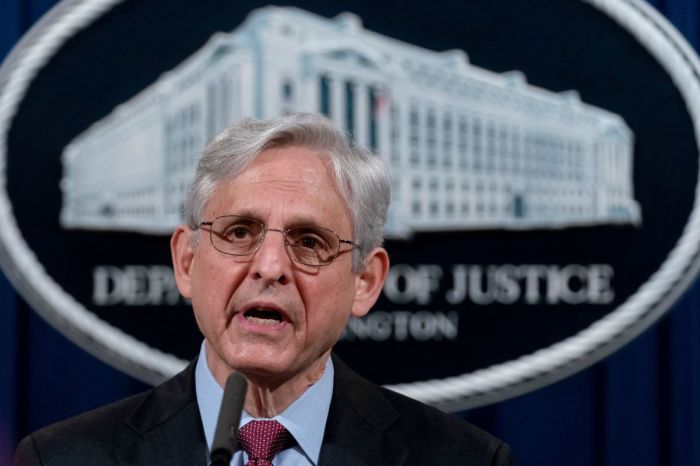DOJ sues Idaho over ‘near-total' abortion ban, files first lawsuit since Roe v. Wade reversal

The U.S. Department of Justice has filed a lawsuit against Idaho, claiming that the state law banning almost all abortions violates federal law regulating public access to emergency services.
In an announcement Tuesday afternoon, the DOJ announced the complaint against Idaho Code § 18-622, which the department describes as a "near-total ban on abortion." The law will go into effect on Aug. 25.
The filing marks the first time the Biden administration has taken legal action against a state abortion restriction since the U.S. Supreme Court overturned the 1973 Roe v. Wade decision that made abortion a national right last month. It could also be a sign of litigation to come against states that have enacted similar laws.
The Justice Department contends that the Idaho law conflicts with the Emergency Medical Treatment and Labor Act of 1986. The law focuses on "public access to emergency services regardless of ability to pay."
"Section 1867 of the Social Security Act imposes specific obligations on Medicare-participating hospitals that offer emergency services to provide a medical screening examination (MSE) when a request is made for examination or treatment for an emergency medical condition (EMC), including active labor, regardless of an individual's ability to pay," explains an EMTLA info page.
"Hospitals are then required to provide stabilizing treatment for patients with EMCs. If a hospital is unable to stabilize a patient within its capability, or if the patient requests, an appropriate transfer should be implemented."
In its complaint, the Justice Department argued that "medical care that a state may characterize as an 'abortion' is necessary emergency stabilizing care that hospitals are required to provide under EMTALA."
"Such circumstances may include, but are not limited to, ectopic pregnancy, severe preeclampsia, or a pregnancy complication threatening septic infection or hemorrhage," the filing reads.
Attorney General Merrick Garland said in a statement that the lawsuit is part of the DOJ's effort to "work tirelessly to protect and advance reproductive freedom."
"That is what we are doing, and that is what we will continue to do," stated Garland. "And we will closely scrutinize state abortion laws to ensure that they comply with federal law."
Idaho Code § 18-622 bans most abortions in the state, threatening a criminal punishment between two and five years of imprisonment for any person found to have performed a "criminal abortion."
The law provides exemptions for abortions performed in cases of rape and incest reported to proper authorities and to "prevent the death of the pregnant woman." The law also prohibits criminal prosecution of pregnant women seeking an abortion.
Although the law includes an exception for preventing "the death of the pregnant woman," the Justice Department argues that the law puts the liability on abortionists who risk jail time and losing their medical license if they can't prove that the abortion was necessary to save the life of the mother.
The department further argues that the law "provides no defense for an abortion necessary to protect the health of the pregnant patient."
On June 24, the U.S. Supreme Court ruled 6-3 in Dobbs v. Jackson Women's Health Organization that abortion is not a constitutional right.
Since then, several states have enacted policies that ban abortion under most circumstances. The Biden administration has sought efforts to help secure abortion access.
Last month, the DOJ launched a "Reproductive Rights Task Force" to monitor state and local laws restricting abortion, which Associate Attorney General Vanita Gupta chairs.
According to a Harvard Center for American Political Studies/Harris Poll report released in June, most respondents opposed the overturning of Roe, but only 10% wanted their state to allow abortions through all nine months of pregnancy.




























